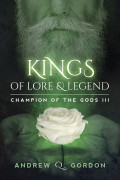Guest Author: Christopher Hawthorne Moss
Please welcome Christopher ‘Kit’ Moss. Kit is a an extremely witty person who writes historical MM fiction. [I have it on the highest authority that humor and MM pairing existed since before we were born, so there is a factual basis for all that he writes.] Kit has stopped by to talk about his new book Where My Love Lies Dreaming, which is set in Nineteenth Century American.
Guest Author: Christopher Hawthorne Moss
Welcome Christopher, why don’t you start by telling everyone a bit about yourself.
 I have been writing stories since I was about seven, and I have been a man for my whole life, though I did not figure that out until rather recently. That is, I am transgender. I wrote as “Nan Hawthorne” for most of my writing career. I knew my work was unusual for a woman, and now I know why and am very pleased to be “in character” at long last.
I have been writing stories since I was about seven, and I have been a man for my whole life, though I did not figure that out until rather recently. That is, I am transgender. I wrote as “Nan Hawthorne” for most of my writing career. I knew my work was unusual for a woman, and now I know why and am very pleased to be “in character” at long last.
Oh, and you can call me Kit.
How long have you been writing?
When I was about seven I wrote a whimsical story about a lonely old man who winds up giving rides to the neighborhood kids in his rabbit-powered rocking chair. I mostly just played make-believe, not writing the stories down after that, until I was twelve and a friend and I started writing stories that wound up becoming my first novel decades later. In the meantime I wrote nonfiction, mostly web content. My first book was about sex, self esteem, and pagan values. I had started a group on Yahoogroups called Ghostletters where everyone participated fictionally, and when I decided to use those old stories I realized I was writing a novel. That’s when my real life began.
Tell us a bit about your newest release Where My Love Lies Dreaming

WHERE MY LOVE LIES DREAMING brings together two very different men, a New Orleans riverboat owner and professional gamblerwho has lived “out and proud” as much as he can, and a repressed German immigrant who wants nothing more than to be “normal”, a hardworking, American man with a family. If opposites attract, they also are doomed to throw a monkey wrench into the works, and Frankie and Johnny struggle to share love and lust while Johnny is in deep denial. Just after a huge fight where they split the American Civil War breaks out, destroying both men’s ways of life. When the two encounter each other again, it’s as a Union and a Confederate officer on the battlefield.
I am very proud to say the reviews have been stellar and that my novel is a finalist in the 2013 Rainbow Book Awards!
Historical fiction is both fascinating and daunting to me as a writer. What drew you to this genre?
It’s a lifelong passion, but recently it has become much more. I love history but there are segments off the population who were “erased” from it, everyone from women, to racial minorities, the poor, and, specifically, LGBT people. The only records of our lives through history are negative or at best interpreted negatively. I believe strongly that we have been here always and that in spite of the pressures and dangers we faced, many of us made lives and loves for ourselves. I want to create a sort of history though plausible, well researched and reasoned historical fiction.
What else have your written?
My first novel was based on those stories my friend and I wrote as pre-teens, AN INVOLUNTARY KING. It is not an LGBT novel, but the characters in it are my oldest friends. Ironically my next novel was about a woman who chooses to live as a man in order to fight as a knight in the Crusades. I said I wrote it so I could have a female character I could relate to… and of course Elisabeth is more a transman than a woman… that helped me to some critical self-examination. I self published this one, and now I am thrilled to say it is being republished by Harmony Ink.
I also have written tons of book reviews, stories, articles, and other imaginative and fairly often humorous material for the Internet.
Tell us something interesting that is not in the blurb?
One very challenging aspect of writing historical dialogue is making sure you don’t put 21st century words into your characters’ mouths. Now with my first two novels that was not that difficult. After all, everything a character would say would have been in a language no one speaks now. When someone once criticized the use of the 14th century word “tavern” in a book that takes place in the 10th century, I pointed out that none of the words in the entire book existed in the 10th century. Writing my Civil War novel almost made me nostalgic for writing about extinct languages when my editor and I played sleuth with words that turned out to be newer than 1865. You’d be surprised. “Playboy” was OK, but “stud poker” was not. I wouldn’t change it for the world though. It is just plain fascinating.
Have you ever based characters on anyone you know?
Oh yes, and I even named some after real people. The best example is the provost major near the end of the novel who is my good friend Jack in every way. It’s a very funny scene.
What’s your favorite part of the writing process?
Getting a whole new set of friends every time. A novelist gets to know his/her characters quite intimately, and though I grieve at the completion of a work, I also know that somewhere out there in the characters’ dimension, there is another group just waiting for me to tell their stories.
What’s your least favorite?
The inevitable reviews written by people who judge a book by their own personal druthers or simply do not understand what the author is doing in the book. They have too much influence on others’ book choices, but, fortunately, not nearly as much as they think they do.
Since there is always another story to tell, what are you working on now?
One character in WHERE MY LOVE LIES DREAMING is Michael Murphy who talks about having fought in the Mexican-American War where he was badly wounded. Sounds like another novel to me, don’t you think?
Indeed. I hope you’ve started it already.
What have you read lately that most people haven’t read but should?
I’m afraid your readers probably read the same things I do. Maybe I will hearken back to one book and series that knocked my socks off, Dorothy Dunnett’s Lymond series. The first, GAME OF KINGS, has the most arresting transformation of the main character I have ever read. I read so much, my Kindle always chattering away day and night, though, that it takes a lot to have a book stand out like that one did.
If you could meet any writer, alive or dead, who would it be and why?
Whoever wrote Beowulf. I want to party with him.
What’s a fun – non-writing – day for you?
Ikea and a lunch of Swedish meatballs with my sweetie…
Besides reading and writing, what else do you enjoy?
There’s something else? I jokes. I have an almost religious devotion to naps which include our cats. I enjoy movies but have failing eyesight, so I don’t see that many anymore. I am naturally cheerful so I can have fun almost anywhere and doing almost anything that doesn’t require bending, kneeling of squatting.
Last question is all yours – feel free to talk about anything you want your readers to know about you, your book, anything at all.
Wow, you mean I can wax eloquent about how Europe’s trade was impacted by the Crusade of 1101 because it forced dependence on sea trade which proved vital in the advancement of the Italian cities? Oh you said I could write about it, but not that anyone would read this paragraph.
OK, how’s this? What I always want to know after someone has read my book is who their favorite character was and why, if there was a scene they specifically enjoyed, and if they laughed at lines and which they were. So now it’s your turn to answer.
Thanks for being my guest, now it’s time to plug your work –
 Blurb:
Blurb:
As the famous riverboat Le Beau Soleil lazily steams down the mighty Mississippi into the heart of the South, distractions of every sort attempt to pull agent for the Treasury Johnny Stanley away from his assignment. While liquor and gaming are no great temptations, his fascination with Le Beau Soleil’s owner, the debonair Frankie Deramus, means Johnny’s steadfast denial of his attraction to men is no longer feasible. Johnny fights his lust, but when he must come to Frankie’s aid, he can’t ignore his urges any longer.
Their passionate love affair falls apart when Johnny refuses to admit two men can be in love. A bitter confrontation between the lovers at a Mardi Gras masquerade forces Johnny to run north. Frankie tries to follow, but the Southern states secede one by one, making it impossible to track Johnny down. The Civil War pits brother against brother and separates lover from lover. When at last the lovers meet again, it’s on the battlefield….
Buy Link:
http://www.dreamspinnerpress.com/store/product_info.php?products_id=4126
Excerpt:
LaPorte took them down a short corridor to a door he pushed open and stepped through. “Bienvenue, François. Take a seat. Thank you, Barnet, for convincing him to enlist.”
In other words, good-bye, Hugh, Frankie thought. The two officers saluted each other and with some murmur of pleasantries, Barnet took his leave. “Charming fellow,” Frankie said indolently.
LaPorte took the seat behind his desk while Frankie found a place to lean his walking stick, removed his hat, and sat on the chair indicated. “You are old friends, I believe?”
“We grew up together.”
LaPorte’s cocked eyebrow told Frankie he had gotten the impression that “friends” would not reflect the relationship accurately. He went on, “Well, past associations are best left in the past.” He gave Frankie a significant look.
“Je comprends. You can count on that.” He sighed. “I suppose that as of now I will have to start saluting him and calling him ‘sir.’”
“You were always a thoroughly courteous man. The ‘sir’ should not bother you.”
Frankie thought, but now it will be a pretense of respect, not simply politesse. Aloud he said, “So, Major, what do I need to do now? See my tailor, I suppose.” He suddenly realized he was going to have to drop his languid demeanor and be more… well, military. He sat up straight.
LaPorte looked like he had been thinking along similar lines. “Well, yes, but first we have to figure out which uniform to have Schmidt make for you, n’est-ce pas?” He sat back in his chair, crossed one arm over his chest resplendent with brass buttons and other insignia, resting his other elbow on it, and considered Frankie. “Did you have anything in mind?”
Frankie knew full well no matter what he had in mind, it was unlikely to be the outcome of this meeting. “Barnet… excuse me, Major Barnet said there was a need for someone to encourage other Creole gentleman to do their duty to the Confederacy.”
LaPorte chuckled. “He did, did he? I should think my presence in this capacity would give the lie to that. Besides, Soulé has taken care of that need.”
Frankie looked down with a bemused expression. “I see.”
LaPorte suggested, “You have Le Beau Soleil, so you are fit for navy service, I suppose.”
Frankie interrupted, “But Barnet—” Then the riverboat was mentioned.
“Don’t tell me Barnet has promised something else, something regarding Le Beau Soleil?”
Frankie shook his head. “He just used it as a threat. Implied that if I did not ‘do my duty’ the army or navy will confiscate her.”
Lowering his arms, LaPorte frowned. “You realize that will happen anyway.”
Trying to hide dismay, Frankie urged, “Is there nothing I can do to prevent that? I am simply afraid of losing my livelihood after the war.”
“Understandable concern, Deramus, but much worse sacrifices are being made by men who have decided to serve the Southern cause.” He thought a moment. “You know, President Davis is offering letters of mark and reprisal for privateers….”
Frankie shook his head. “It’s not that I don’t want to serve. It’s that I would rather not risk my boat in battle situations.”
LaPorte shrugged. “The best I can promise is to try to channel the Soleil’s use away from actual battle. But it won’t be up to me, you realize.”
Frankie considered this. “I am not a sailor or engineer. I don’t know how I can be of any use to the navy. Do you?”
LaPorte shook his head. “No, though we can talk to whomever they assign to be commander of naval forces on the Mississippi. Can you navigate?”
Frankie essayed a smile. “In social circles, mais oui.” The major’s frown made him realize he was being flippant again. “No, sir, I cannot pilot. The two pilots who worked for me have both… been placed.”
He wasn’t sure if Compton had had time to get out of New Orleans yet. Then, a thought struck him. “I believe my captain, Josef Mayer, has not made up his mind what to do yet. I can ask him to stay with the Soleil in the army or navy’s service.”
The man at the desk smiled sardonically. “Well, that will be up to the army or navy, but I think I can make a case for his knowing the boat and the river better than anyone the service can supply. I remember it’s quite capacious. Lots of cargo and passenger space?”
Frankie nodded hopefully.
“I should think it would be better used for cargo and troop transport, then. It would not do well as a rammer.”
Frankie knew about the rammers. Tom Rice, one of the former pilots on Le Beau Soleil, had told him he was to pilot the Magnolia Queen, which was to be a rammer.
The Queen, like most of them, was a privateer—also a steam-driven side-wheeler like the Soleil, but skimpy on main deck space and low in the water. The privateers were hardening their bows with steel, so they could steam up to both merchant and military vessels and sink them by ramming through their hulls. The response was making existing ships ironclad, but it would be a while before most could be refitted, either on the Federal or the Confederate side.
“I agree.” Frankie thought hard. He hated the idea of hundreds of soldiers picking at the gold leaf on the doorways and pissing in the fountain, but perhaps he could make sure the impact would not be devastation. “The staterooms would do well for officers. There are quite a few.” He put out a tentative feeler. “Would I… will I lose ownership entirely?”
LaPorte waved one hand dismissively. “I shouldn’t think so. If you insist on gouging the government for its use, then you might.”
“But if I don’t, if I offer the Soleil’s use during the war as part of my… contribution to the cause of liberty…?”
The major shrugged. “I can’t guarantee it, but that ought to ameliorate things considerably. But that only takes care of Le Beau Soleil. What about you? Let me think….” He stood and moved around to the front of the desk and leaned back against it. “You are primarily an entertainer. I hope that is not insulting?”
Frankie waved a hand in dismissal. “Not at all. Besides being a wealthy man with interests in numerous businesses, I make most of my money as the star attraction, I suppose you could say, of taking passage upriver and back. But I doubt you have positions for gamblers.”
“No,” LaPorte answered, stretching out the word. “But you must be able to get into a man’s head and anticipate his actions. Maybe even influence them.”
Frankie nodded slowly.
The major stood and went to sit behind his desk once again. He opened a side drawer and drew out some papers. “I think you might be particularly useful in intelligence.” He took a pen from an inkwell and dipped it. “That is, if you are loyal.” Hesitating, he asked, “You do have slaves, don’t you?”
Frankie thought of the Albrights and their official status as his property in spite of his own wishes that he did not have to own them. He answered with ease, “Yes.”
“And you harbor no sympathies for the North.”
Frankie could look LaPorte in the eye and state firmly, “I am first and foremost a proud citizen of New Orleans and the great state of Louisiana. I would never take any action to harm my beloved homeland. You know that I am a man of honor. I may be a less than stellar citizen, but I am no traitor to my people, my country.”
Hercule LaPorte, Major, Army of the Confederate States of America, smiled. “We understand each other perfectly.” He started to write on the papers. “Of course, you won’t be called an intelligence officer. That spooks everyone. You will be in communications.” He continued to write. At a pause, he looked up with a knowing smile. “What rank?”
Frankie was clueless at first what the major meant by the look. Then it came to him. “How much is a major?”
LaPorte smiled. “You’d like that wouldn’t you, not having to say ‘sir’ to Barnet. Believe me, I would too. But that might be pushing it. Captain. Be extraordinary and you may find yourself promoted.” He scribbled more on the document, turned it, and pointed to where Frankie should sign.
Picking up the pen and dipping it into the ink, Frankie said—probably for the last time for a long time to come—exactly what came into his head. “Being extraordinary is what I do best.”
Bio:
Christopher Hawthorne Moss wrote his first short story when he was seven and has spent some of the happiest hours of his life fully involved with his colorful, passionate and often humorous characters. Moss spent some time away from fiction, writing content for websites before his first book came out under the name Nan Hawthorne in 1991. He has since become a novelist and is a prolific and popular blogger, the historical fiction editor for the GLBT Bookshelf, where you can find his short stories and thoughtful and expert book reviews. He lives in the Pacific Northwest with his husband of over thirty years and four doted upon cats. He owns Shield-wall Productions at http://www.shield-wall.com. He welcomes comment from readers sent to christopherhmoss@gmail.com and can be found on Facebook and Twitter.
Social media:
My social media links can be found on my website at www.shield-wall.com











0 Comments